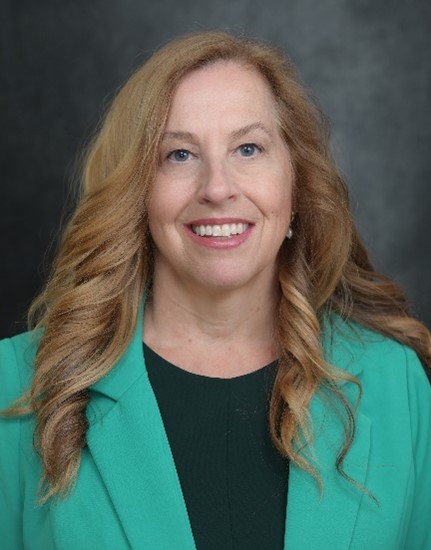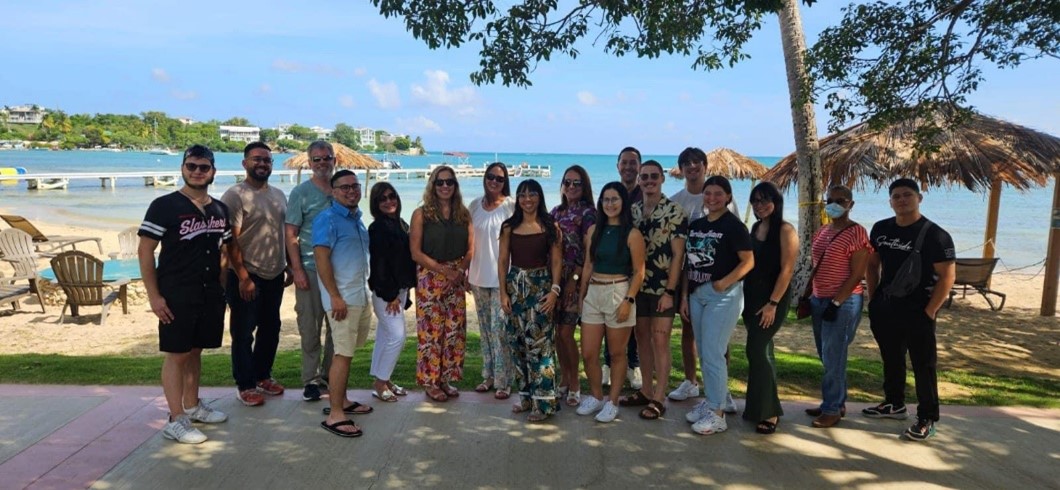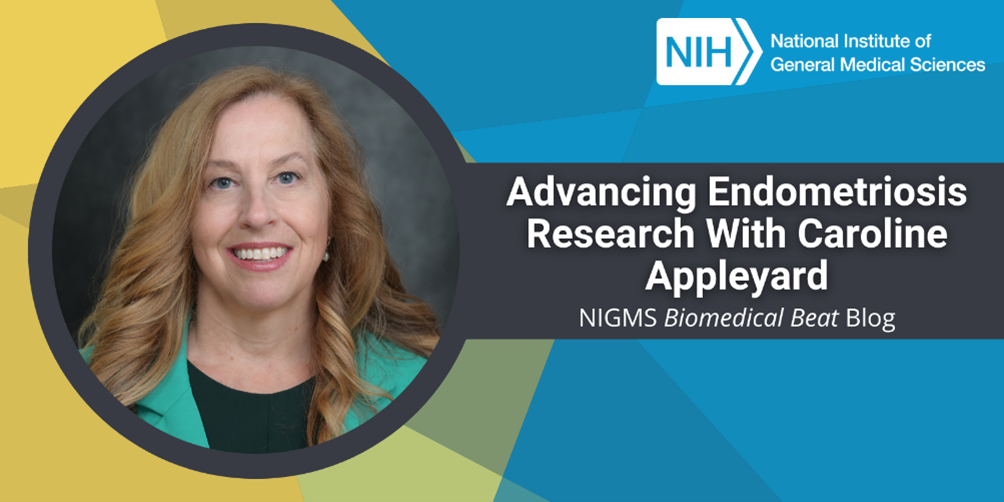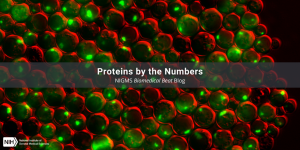
The job opening at Ponce Health Sciences University (PHSU) in Ponce, Puerto Rico—home to great coral reefs—seemed like a perfect fit for Caroline B. Appleyard, Ph.D., given that scuba diving was one of her favorite hobbies. She only intended to stay for a short time, but now, more than 25 years later, Dr. Appleyard is a professor of physiology and pharmacology and program director of the NIGMS-funded Graduate Research Training Initiative for Student Enhancement (G-RISE) at PHSU.
An Interest in Inflammation
Growing up in Scotland, Dr. Appleyard was captivated by a children’s show with science demonstrations that helped kids and teens understand the world around them. She enjoyed studying biology and chemistry, and in high school, joined a lab at a local university that studied pharmacology. Her lab project studying the medicine aspirin ultimately solidified her interest in a career in research.
From there, Dr. Appleyard started her undergraduate education in pharmacology at the University of Edinburgh in Scotland. As part of her senior project, she worked for one semester at the Royal Infirmary in Edinburgh in the blood transfusion unit, where she learned more about the components of blood, including immune system cells. This experience led to a new interest in inflammation, especially how it goes awry.
“What intrigues me about inflammation is how it can be a double-edged sword: It’s a good thing because it protects us from infection or injury, but it can cause problems when it gets out of control,” says Dr. Appleyard. “Despite how much we understand about inflammation, the chronic diseases it causes still plague patients, and there are many unanswered questions about why we can’t control it.”
Pursuing this interest, Dr. Appleyard entered a Ph.D. program at the University of Southampton in the United Kingdom to study clinical pharmacology. There, she researched how gastrointestinal inflammation relates to diseases like ulcerative colitis (UC).
Two postdoctoral positions followed Dr. Appleyard’s Ph.D. studies. At the University of Calgary in Canada, under the mentorship of John Wallace, Ph.D., she helped develop a research organism able to mimic the chronic intestinal symptoms of human UC. She then studied the influence of the nervous system and blood flow on gastrointestinal inflammation through the gut-brain axis—a communication channel between the gut and brain—at the University of South Dakota in Vermillion. This experience in neuroscience directly impacted Dr. Appleyard’s research interests as she started her own lab at PHSU.
Examining Endometriosis

Through conversations with her colleagues at PHSU-Ponce Research Institute, Dr. Appleyard realized there were similarities between the inflammation in UC and in endometriosis, a disease in which lesions of tissue similar to a uterus’ lining grow in other places in the body. Patients with endometriosis experience symptoms such as pelvic pain, strong menstrual cramps, and gastrointestinal upset. In addition, they’re often under a lot of stress that stems from symptom management, missed work or school, and the infertility endometriosis causes. Stress can worsen the symptoms of many chronic diseases, including UC, but researchers didn’t know if that was true in endometriosis. Dr. Appleyard’s lab set out to help answer this question by studying rats that develop endometriosis.
“We showed that stress—either before or after the disease course
began—exacerbated endometriosis in the rats. Our next question was whether we could block that connection, either with medicine or without,” Dr. Appleyard explains. Exercise and mindfulness techniques, such as deep breathing, are known to be stress-relieving activities, so Dr. Appleyard increased the rats’ exercise regimens. She found that additional voluntary exercise before or after endometriosis onset reduced the size of the lesions that grew, the levels of inflammation, and symptom severity.
“Of course, this is difficult to translate to human patients. Given the symptoms that people with endometriosis experience, patients may not want to—or can’t—exercise. Instead, as a first step, we tested the effect of mindfulness techniques on pain, mental health, and quality of life in patients with endometriosis,” Dr. Appleyard says. The studies saw decreases in anxiety, stress, and depressive symptoms in patients who adopted the techniques.
Moving forward, the lab is working to understand the cellular mechanisms controlling the connection between stress, exercise, and endometriosis. Nerve cells in the gut, called enteric glial cells (EGCs), play a role in controlling inflammation in the intestinal tract by producing anti-inflammatory molecules. Dr. Appleyard’s lab has shown that exercise can increase the production and activity of these anti-inflammatory molecules in addition to reducing lesion size and symptom severity. She plans to further investigate the role of EGCs in endometriosis with the goal of identifying specific cell types, receptors, or signaling molecules involved in this process that future medicines could target to treat or prevent the disease.
G-RISE at PHSU
One aspect that Dr. Appleyard likes most about her job is the mix of research, teaching, and student training she’s involved in, including her role as program director of G-RISE at PHSU. The goal of G-RISE is to strengthen research training environments and promote broad participation in the biomedical research workforce by expanding the pool of well-trained scientists earning a Ph.D.

To do this, G-RISE leaders at PHSU provide their graduate students with the professional development and career-building skills they need to stay on track for graduation and for their careers ahead. Through peer mentoring and presentations from visiting scholars and previous G-RISE trainees, current trainees get exposure to research that scientists are conducting around the world and an introduction to the range of career paths they can take after graduate school.
“G-RISE is really my biggest accomplishment. It’s so rewarding to see that our previous trainees have gone on to successful careers in science,” says Dr. Appleyard. In 2017, she was awarded the inaugural Clifford Barger Underrepresented Minority Mentorship Award from the American Physiological Society in part for her impact on the lives of PHSU students since G-RISE’s 2008 inception. “Knowing that my work has such an impact on other people gives me a sense of happiness and pride,” she says.
Dr. Appleyard’s research is supported by NIGMS through grant R16GM149365. G-RISE at PHSU is supported by NIGMS through grant T32GM144896 (formerly R25GM082406). Dr. Appleyard’s educational and mentoring activities are also supported by the National Cancer Institute through grant U54CA163071, and her translational pharmacological work is supported by the Eunice Kennedy Shriver National Institute of Child Health and Human Development through grant R41HD109055.







